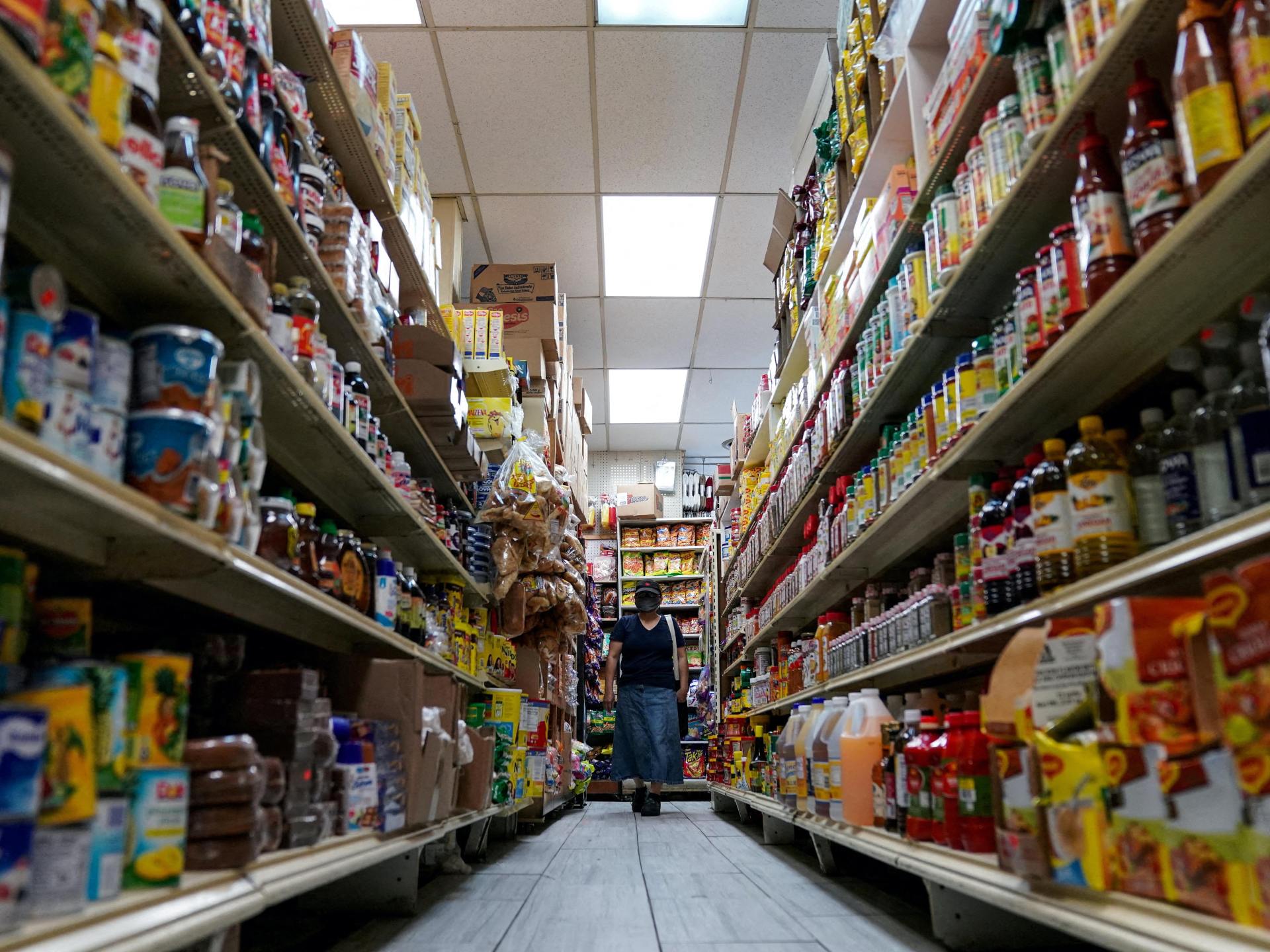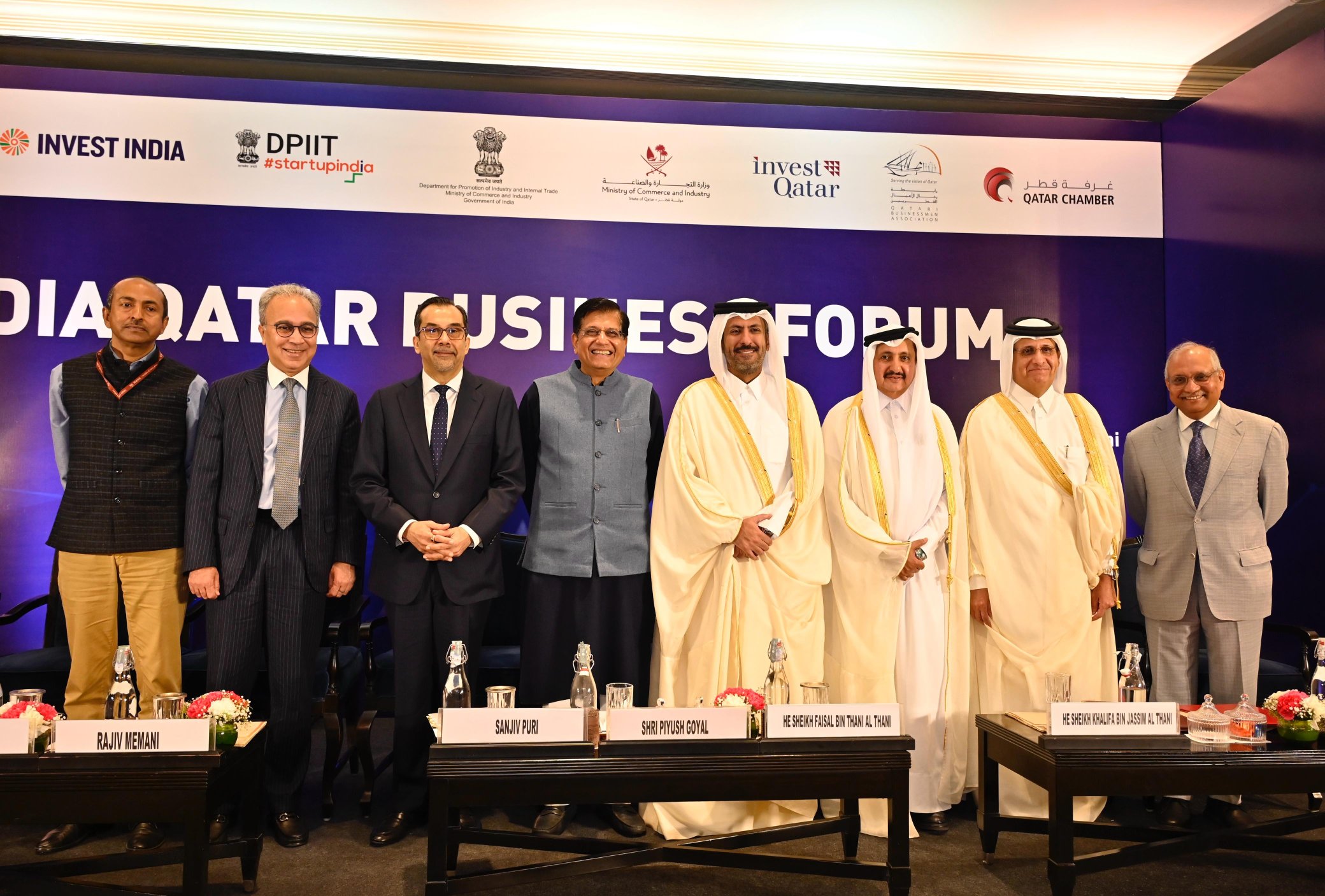As US inflation ticks back up, it could impact the presidential election

Wednesday’s “disappointing” inflation data in the United States showed a jump from February, dampening expectations of an interest rate cut and raising concerns that inflation could remain stubbornly high.
The data has implications not just for the US Federal Reserve, which sets interest rates, but also for the candidates in the upcoming presidential election.
The core consumer price index (CPI), which excludes volatile food and energy costs, increased 0.4 percent in March from the previous month, according to government data released on Wednesday.
The year-over-year rate was unchanged at 3.8 percent. With food and fuel included, inflation is at 3.5 percent, up from 3.2 percent in February.
While inflation is much lower than the 40-year high of 9.1 percent reached in June 2021, when consumers went on a shopping spree with government cheques handed out during the COVID-19 pandemic, it is still well above the US central bank’s target of 2 percent.
The Fed has been on an interest-rate-hiking spree since March 2022, raising the benchmark overnight interest rate from near zero to the current 5.25 percent to 5.5 percent range, where it has been since July.
While that has helped dampen inflation, Wednesday’s data shows the fight is far from over.
“The 0.4 percent m/m gain in the March core CPI was a disappointment, as it surprised to the upside relative to our and consensus expectations for a 0.3 percent increase. This isn’t going to sit well with the Federal Reserve and may push more policymakers to favour two rate cuts this year, rather than three,” Bernard Yaros, lead US economist at Oxford Economics, told Al Jazeera.
The latest inflation data as well as last week’s jobs data – which showed the US economy added some 300,000 jobs last month, well above the expected 200,000 or fewer – has sparked some chatter that with such a strong economy, there might be no rate cuts at all in 2024, said Matt Colyar, economist at Moody’s Analytics.
“Inflation is moderating but happening more slowly than we anticipated,” Colyar told Al Jazeera, adding that the situation is making Fed Chairman Jerome Powell’s “unenviable job that much more unenviable with general elections in November”.
The last meeting before the elections is in mid-September, and Powell has indicated that the Fed is in no rush to cut rates.
“Monetary policy is an inexact science and takes time to take effect. But it’s a psychological effect – that first cut, it comes with the message that we’ve won the battle against inflation. It complicates things so close to the elections,” he said.
If inflation remains higher than deemed satisfactory by the Fed, or if job and wage growth continue at a robust pace, a rate cut is less likely.
But those are also signs of a “strong economy” and that typically favours the incumbent, Colyar said.
“It’s the story of a really sturdy and resilient economy,” he said.
‘Singular focus on price’
While that may be good news on paper, voters still perceive the cost of living as too high.
“Wages are rising faster than inflation for a year now,” Yaros said. “Yet what people are looking at is prices – prices are 20 percent above where they were when [Joe] Biden was inaugurated [as president in January 2020], and that focus on price levels is what’s hurting the mood and Biden.”
While the latest inflation data shows that people are still consuming at a healthy rate, the average American feels poorer today because prices are higher.
“And people look at prices in isolation and not that their wages have also gone up,” Yaros said.
There is a “singular focus on price”, he said.
That’s also because “inflation is cumulative and it piles up”, said Dan North, senior economist at Allianz Trade.
For instance, he said, while wages are around 15 percent higher than where they were in January 2021, food is 21 percent more expensive, housing 31 percent and petrol 41 percent.
On Tuesday, the National Federation of Independent Business (NFIB) said its Small Business Optimism Index fell 0.9 points to 88.5 last month, the lowest level since December 2012. It was the 27th straight month the index was below the 50-year average of 98.
One-quarter of small business owners reported that inflation was their single biggest concern, up two percentage points from February. The percentage of businesses raising their average prices rose seven points.
“People still remember that it used to cost $40 for them and their spouse to get dinner at their favourite restaurant and now it’s $62. You don’t remember the pay raises you’ve gotten along the way,” Colyar said.
All of this is bound to play into the election and be an important deciding factor for which candidate – Biden or opponent Donald Trump – gets votes.
Yaros noted that people tend to hate high inflation much more than high unemployment.
“Inflation affects everyone while unemployment affects only a small section of the society,” he said.
Related
Qatar Business Leaders Optimistic About Long-Term Growth – HRO Today
Research from KPMG finds CEOs are prioritising resilience, technological innovation, and adaptability in 2025. By Maggie Mancini As organisations respond to glo
Indian Startups Showcase Innovation and Global Expansion at Web Summit…
Indian startups are making waves globally, and their latest venture at Web Summit Qatar 20
Qatar’s tax authority launches 100 percent financial penalty exemption initiative…
To qualify, companies must register on the Dhareeba Tax Portal and ensure that all taxpayer data is updatedQatar’s General Tax Authority recently announced th
India-Qatar Joint Business Forum held to Strengthen Bilateral Economic Ties…
NEW DELHI : On the sidelines of the visit of H.H. Sheikh Tamim bin Hamad bin Khalifa Al Thani, Amir of Qatar to In












